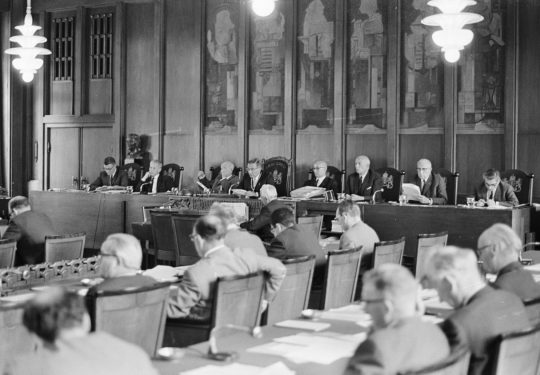Starting with the central borough of the city of Amsterdam, in 2013 Open State Foundation launched Openspending.nl. What has been done around openspending.nl in 2014. An overview of the past year.
Finding out how local authorities organize their finances and how they report their financials to the central government. In the Netherlands, every local government must send a uniform quarterly financial statement to the local statistics office.
Openspending.nl is a tool that allows users to make comparisons of budgets with actuals across years and quarterly periods. With this tool, Open State shows what unlocking financial data means and looks like. At the same time, we drafted guidelines on how to approach other governments. With the assistance of some aldermen and a number of civil servants, we were able to approach the other boroughs of Amsterdam.
It was absolutely clear that we would be able to track not only national, regional and local public financial sector information but eventually, we would also be able to relate financial data to policy decisions. However, even a small country such as The Netherlands, with a population of 16 million, consists of 403 municipalities, 12 provinces, 24 water management boards and 11 government departments. And this can mean a lot of data.

In 2014, we collected data of all boroughs of the city of Amsterdam and tested the comparisons. From then on we started collecting financial data from all local governments in the Netherlands. By doing so, Open State Foundation kept track of its communications with all governments and discovered that a simple question to government entities produces very diverse answers. Dealing with decentralized governments or institutions, collecting data is a huge undertaking but not impossible. When aldermen did not respond, council members took the initiative to ask for the data. In less than three months, we collected at least 3,915 files, containing 27,405,000 data points.
In the past year, we have unlocked financial data from 170 governments, including 7 boroughs, 139 municipalities (including the four largest cities of the Netherlands), 11 provinces and 13 water management boards. The average time a local government took to provide the data ranges between 5 weeks for water management boards to 14 weeks on average for a regional government. From the total of 403 municipalities, data of 125 municipalities has been included, that is one third of all municipalities in the Netherlands. The province of Brabant lags behind with only 3 out of the 63 municipalities in that region. Brabant has been the last province we started asking for the data.
From the regional governments themselves, there is only one, Zeeland, missing. In this province, 3 out of 13 municipalities have been included (23%). In the province of Drenthe, from the 13 municipalities, financial data from 3 municipalities have been uploaded. There are 13 governments of which data that was sent was not useful. Some sent budgets with only totals but not details. Some governments sent XML files, although an open format, since almost none of the municipalities was expected to provide the data in such format, the backend of openspending.nl was built to deal with raw data. In this way, the efforts of municipalities would remain low.
At the moment, Open State Foundation is advocating to disclosure of the data with the rest of governments and our work has been noticed. Our plea to have the Central Bureau of Statistic release the raw data automatically is currently researched. It is expected that next year this might become a possibility. When that happens, it would be a big win for transparency and data can be automatically be retrieved and presented. It would mean a great success of all efforts undertaken in this area.
